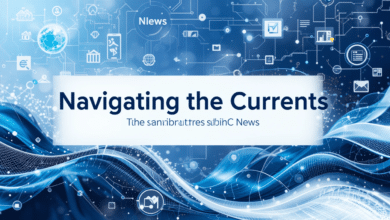Exploring the Future of Education: Next PG

Introduction
The term Next PG refers to the evolving landscape of postgraduate education, encompassing new trends, technologies, and methodologies that are shaping the future of advanced learning. As the demands of the global workforce continue to change, the concept of Next PG becomes increasingly important for students, educators, and institutions alike. In this comprehensive blog post, we will explore what Next PG entails, why it matters, and how it is transforming the postgraduate education sector.
What Does “Next PG” Mean?
Next PG stands for the next generation of postgraduate education, where traditional learning methods are augmented by innovative technologies and teaching approaches. This new phase of education focuses on preparing students for the challenges of the future, with an emphasis on interdisciplinary learning, digital literacy, and practical application of knowledge. The Next PG concept is not just about obtaining a degree but about acquiring the skills and experiences needed to thrive in a rapidly changing world.
The Evolution of Postgraduate Education
Over the past few decades, postgraduate education has undergone significant changes. The rise of the Next PG marks a shift from conventional classroom-based learning to more flexible and adaptive models. In the Next PG era, students are encouraged to engage in research, internships, and collaborative projects that go beyond the boundaries of traditional academia. This evolution reflects the need for a more dynamic and relevant education system that meets the needs of both students and employers.
Key Features of “Next PG” Programs
Next PG programs are characterized by several key features that distinguish them from traditional postgraduate courses. Firstly, they offer a multidisciplinary approach, allowing students to explore different fields and integrate knowledge from various disciplines. Secondly, Next PG emphasizes the use of technology in education, including online learning platforms, artificial intelligence, and virtual reality. These tools enhance the learning experience and provide students with the skills needed for the digital age. Lastly, Next PG programs focus on experiential learning, where students gain practical experience through internships, projects, and real-world applications.
The Importance of Interdisciplinary Learning in “Next PG”
One of the core aspects of Next PG is interdisciplinary learning, which allows students to combine knowledge from different fields to solve complex problems. In a world where challenges are increasingly interconnected, the ability to think across disciplines is crucial. Next PG programs are designed to break down the silos of traditional education, encouraging students to explore diverse perspectives and develop a holistic understanding of the issues they study. This approach not only broadens their knowledge base but also enhances their critical thinking and problem-solving skills.
How Technology is Shaping the “Next PG”
Technology plays a central role in the Next PG era, transforming the way students learn and interact with information. Online learning platforms, such as MOOCs (Massive Open Online Courses), have made education more accessible to a global audience. In addition, tools like artificial intelligence and machine learning are being integrated into Next PG programs to provide personalized learning experiences. Virtual and augmented reality technologies are also being used to create immersive learning environments, allowing students to explore complex concepts in a more engaging way. As technology continues to advance, it will further revolutionize the Next PG landscape, offering new opportunities for students and educators alike.
The Role of Experiential Learning in “Next PG”
Experiential learning is a cornerstone of the Next PG concept, emphasizing the importance of practical experience in education. Unlike traditional postgraduate programs, which often focus solely on theoretical knowledge, Next PG programs integrate hands-on experiences into the curriculum. This can include internships, industry collaborations, research projects, and community engagement initiatives. By participating in these activities, students in Next PG programs gain valuable insights and skills that are directly applicable to their future careers. This practical approach ensures that graduates are not only knowledgeable but also capable of applying their learning in real-world contexts.
Challenges Facing “Next PG” Implementation
Despite the many benefits of Next PG, there are several challenges that institutions face in implementing these programs. One of the main obstacles is the need for significant investment in technology and infrastructure. To fully embrace the Next PG model, universities and colleges must develop the necessary digital tools and platforms, which can be costly and time-consuming. Additionally, there is a need for faculty training and development to ensure that educators are equipped to teach in the Next PG environment. Finally, there are concerns about the accessibility of Next PG programs, particularly for students in developing regions who may lack access to the necessary technology and resources.
The Global Impact of “Next PG”
The Next PG movement is not confined to a single country or region; it is a global phenomenon that is reshaping higher education around the world. As countries strive to stay competitive in the global economy, many are adopting Next PG principles to ensure that their workforce is equipped with the skills needed for the future. In countries like the United States, the United Kingdom, and Australia, Next PG programs are becoming increasingly popular, attracting students from all over the world. In emerging markets, such as India and China, Next PG is seen as a way to bridge the gap between education and industry, preparing graduates for the demands of the 21st century.
Future Prospects of “Next PG”
The future of Next PG is bright, with many exciting developments on the horizon. As technology continues to evolve, we can expect to see even more innovative approaches to postgraduate education. For example, advancements in artificial intelligence could lead to more personalized and adaptive learning experiences, while developments in blockchain technology could revolutionize the way degrees and certifications are awarded. Additionally, the rise of the gig economy and remote work will likely influence the design of Next PG programs, with a greater emphasis on flexibility and lifelong learning. As the world of work continues to change, Next PG will play a crucial role in preparing the next generation of professionals.
Conclusion
The Next PG concept represents a significant shift in the way we think about postgraduate education. By embracing interdisciplinary learning, technology, and experiential opportunities, Next PG programs are equipping students with the skills and knowledge they need to succeed in a rapidly changing world. While there are challenges to overcome, the benefits of Next PG are clear, offering a more relevant and dynamic education experience for students. As we look to the future, Next PG will continue to evolve, shaping the next generation of leaders, innovators, and thinkers.
FAQs
1. What is “Next PG”?
Next PG refers to the next generation of postgraduate education, characterized by interdisciplinary learning, technology integration, and experiential opportunities.
2. How is technology influencing “Next PG”?
Technology is central to the Next PG concept, with tools like AI, online platforms, and virtual reality transforming the learning experience.
3. What are the key features of “Next PG” programs?
Key features of Next PG programs include a multidisciplinary approach, technology-enhanced learning, and a focus on practical, real-world experience.
4. What challenges do institutions face in implementing “Next PG”?
Challenges include the need for significant investment in technology, faculty training, and ensuring accessibility for all students.
5. What is the future of “Next PG”?
The future of Next PG looks promising, with continued advancements in technology and a growing emphasis on flexibility and lifelong learning.



